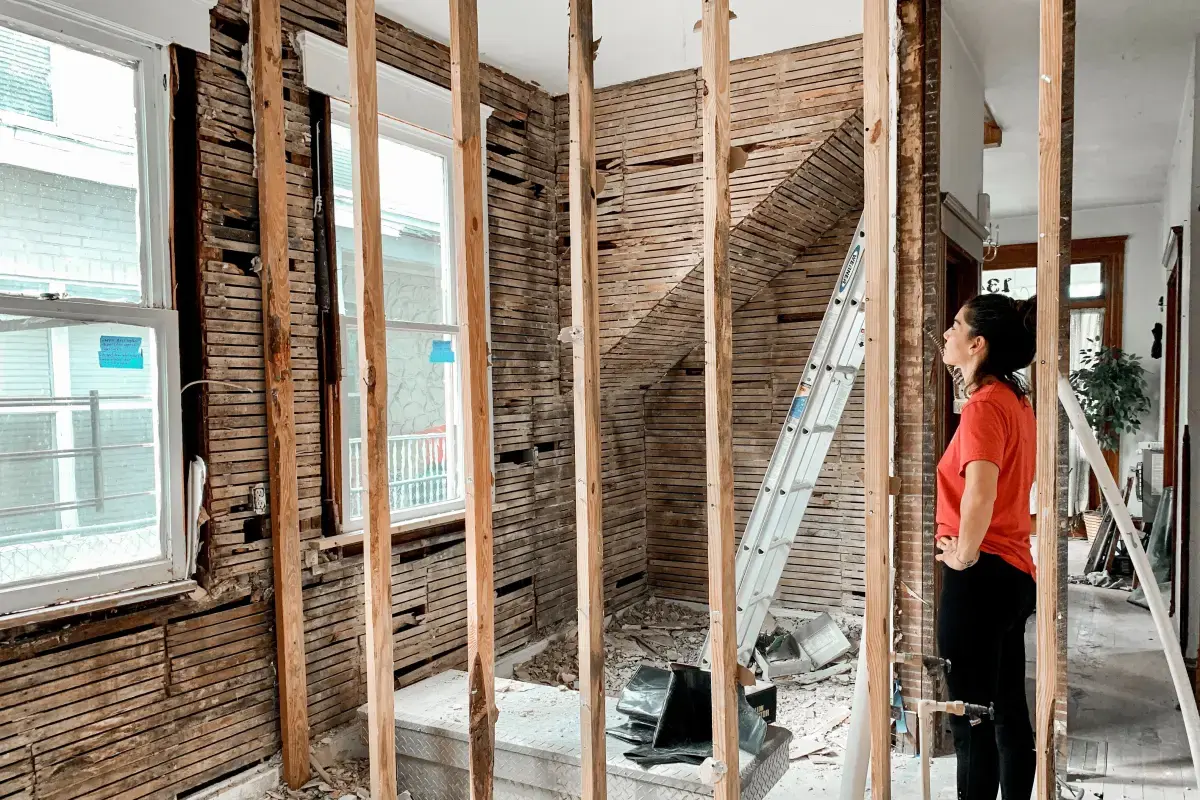
Construction & Building Services in Canada
Find the Best Construction & Building Work in Canada Near You
Hire the Most Trusted Local Construction & Building Workers Near Me. Choose how you work. Choose who you hire.

Find & Hire Construction & Building Experts via our 4 Flexibile Work Services in Canada
Choose which service works for you to find, hire and recruit highly skilled and trusted Canadian Construction & Building Experts
Gigs
Jobs
Volunteers
Promote
How the gigexchange Canada gig economy service works?
Create Your Gig Economy Listing in Canada
Post any gig job work task you need completed by our experts
Select the Best Freelancers & Gig Workers in Canada
Select from our trusted & verified Canadian self-employed gig workers
Safe & Secure Financials in Canada
We hold the money while the work gets completed to your satisfaction
How the gigexchange Canada job portal website works?
Business & Recruiters in Canada
Advertise your Construction & Building Jobs for FREE to recruit and employ the best job seekers in Canada
Job Hunters in Canada
Search for Full-Time & Contract Jobs. Find your dream Canadian job through our online recruitment & employment platform.
How the gigexchange Canada volunteering platform works?
Charities & Non-Profit Organisations in Canada
Post a Volunteer Advert for FREE, always!
Volunteers in Canada
Search and find volunteering roles in Canada
How the gigexchange Canada advertising service works?
Post a Classified Ads in Canada
Advertise your Construction & Building business service in Canada for FREE
Find New Customers in Canada
Connect and engage with new customers in Canada
Feedback, Ratings & Reviews
Grow your brand on gigexchange through our Customer Testimonials & Accredited Reviews
Check our Construction & Building Services
What is the Construction & Building Industry in Canada
The construction industry in Canada is a major contributor to the country’s economy. It accounts for about 8% of national Gross Domestic Product and employs over 1 million people across all ten provinces as of 2019, with many more employed indirectly through manufacturing related industries. The sector plays an important role in providing housing, energy production facilities and commercial infrastructure that supports economic growth throughout the entire nation. Residential Construction: This part of the industry focuses on building new homes or fixing up existing ones such as renovating kitchens/bathrooms or improving other aspects like landscaping or interior design etc… Residential construction contributes significantly to job creation within local communities because it includes jobs from developers who plan developments ahead of time; contractors who oversee project builds during its progress; plumbers & electricians that install fixtures into those projects plus suppliers (i.e lumbering yards) manufacturers (like tile companies), specialist subcontractors including floor layers, carpenters joiners painters decorators tilers plasterboard erectors dry liners aluminuim fabricator glaziers stonemasons window fitters cedar shingle makers structural steel fixer welded metalworkers cladding workers stonecarvers bricklayers roof slaters felt lasher repairers groundworkers etc...All these kinds need employees directly involved while also assisting associated sectors supplying materials used by this area – products ranging from bricks blocks doors windows fencing sanitary ware kitchen furniture pipes cable wires nails glue screws paint joint sealants insulation boards tiles carpet ceramic mosaics shower screens bathtubs sinks bathroom suites brassware tools access equipment safety clothing workwear uniform protective gloves rubber boots harnesses scaffolds ventilation ducts crane lifts excavators forklift trucks compactor rollerbuckets pylons pre-fabricated walls door frames manholes concrete mix handrails lightings fire alarms AC units telecom cables heating systems security cameras air con parts solar panels among others…. These elements combined create a huge amount money spend towards their purchase which then rolls down far enough helping small business owners around Canadian regions . Commercial & Industrial Construction: Nonresidential buildings are generally built for specific tasks outside living spaces i..e shops offices factories businesses leisure centres warehouses hotels hospitals educational institutions police stations public libraries shopping malls sports stadiums theatres court houses banks synagogues churches mosques railway tracks motorway roads airports power plants wind farms gas lines water pipelines sewage treatment locks dams bridges canals harbours dockyards entertainment venues convention centers coding academies film studios storage sites religious institutes retirement villages nursing homes graphics studios laboratories scientific research rooms technology parks engineering labs pharmaceutical biolabs petroleum refineries astronautic complexes nuclear reactors military bases data centres spacecraft launching pads information hubs recycling plant parking lots container ports quarries landfill sites theme parks service areas disaster relief works hazardous waste management grounds control towers wholesale stores cashpoints retail showroom franchise outlets tech network providers substations biomass installations harbors docks logistic carriers PV cell arrays navigation beacons smart metros deep underground tunnels golf courses artificial islands art galleries health retreat resorts environmental corridors nature reserves forestry zones fish hatcheries shooting ranges conservation flats biosphere preserves powder magazines civil list depots amongst many other types exist . Since most nonresidential constructions tend require highly skilled labour forces larger capital investments than what we see inside residences above thus generate greater revenues each year making them beneficial even long terms financially since once build stand quite long periods without needing refurbishing upgrading unlike dwellings do after certain intervals.

What is the role & importance of the Construction & Building Industry Associations in Canada
The Construction Industry Associations (CIAs) of Canada play an important role in the Canadian construction industry. These CIAs are non-profit organizations that represent builders, subcontractors, suppliers and other professionals working within the sector. They provide a number of services to their members such as implementing quality standards for building materials and techniques, professional development programs for workers, accreditation initiatives for certifying contractors’ capabilities. Additionally they lobby governments at all levels on behalf of their constituents in order to ensure sound public policy affecting the construction industry is created or maintained - from advocating changes related taxation rules impacting businesses throughto firmly positioning themselves against any potential threats coming from foreign companies competing unfairly with local firms bidding government contracts where bid prices can be artificially low due lack not adhering employment standards legislated by respective provincial/territorial legislation Its also worth noting that these associations typically establish partnerships among academics and researchers dedicated towards making sure best practices ones used throughout Canadian provinces when it comes down both research & technology supply chains use only qualified personnel those trusted having properly vetted qualifications before being hired.. Developments carried out here may then have direct implications around world setting high benchmarks others must follow suit replicate without fail if results desired match up expectations set initially upon commencing studies!

What are the benefits of joining a Construction & Building Industry Association in Canada
Networking Opportunities: Joining a construction association can open up numerous networking opportunities within your industry and beyond, enabling you to make valuable connections with other professionals in the field who could become key partners or even customers for your business. By attending events hosted by these organizations, members are able to stay on top of trends related to their profession as well as build relationships that will help them generate more leads and grow their business. 2. Professional Development: Construction associations typically organize professional development courses designed specifically for those involved in the trades such as workshops, seminars & webinars which not only provide an opportunity to learn but also allow contractors interact one-on-one with experienced mentors who have been through similar experiences when establishing themselves professionally – something invaluable towards achieving success long term! This is especially true if membership includes access into online forums where members get share solutions/ideas plus troubleshoot any problems encountered along the way most easily too - all while staying compliantly “aboveboard” wrt safety standards etc across Canada without worrying about crossing national borders since its local expertise guarantee!! Plus many offer certification programs (preferably certified nationally) so this helps show potential clients how committed they really want be when competing against competitors offshore.. Perhaps best part? Most often than not therell discounts available off course fees making sure everyone has every chance succeed at cost effective prices.

What are the current work opportunities in the Construction & Building Industry in Canada
Self-Employed/Contractor: Canada’s construction industry is a competitive market with many opportunities for self-employed contractors and entrepreneurs who have the right skills, qualifications, and expertise to take on jobs ranging from small home renovations to larger commercial projects. Contractors are able to set their own rates based upon experience level coupled with local labor costs while gaining autonomy over which types of contracts they wish to accept. 2. General Job Market: The Canadian labour force encompasses more than 2 million people employed in various aspects of the construction sector including carpenters; electricians; plumbers; HVAC (heating, ventilation & air conditioning); architects / engineers; project managers / estimators etc., all working together towards successful completion of projects within predetermined timelines advised by clients or regulatory bodies such as provincial building codes.. Though diverse job postings can be found throughout multiple industries nationwide – positions like labourers or general workers make up an increasingly large portion due in part to influxes resulting from migrant immigration programs into select provinces along side existing demand related issues stemming form aging infrastructure requiring repair/ upgrade works across both public private sectors alike . 3. Volunteering Opportunities : Building trade association offer volunteer initiatives often through partnering firms allowing inexperienced personnel gain work site exposure under experienced guidance free cost this ultimately accelerates professional development during apprenticeships helping further refine personal knowledge thus enhancing future prospects when applying learning acquired gains onto incoming roles taking part key reaching individual career milestones aimed at eventually becoming fully certified professionals likely commanding higher wages alongside increased earning potential later life down road ahead








